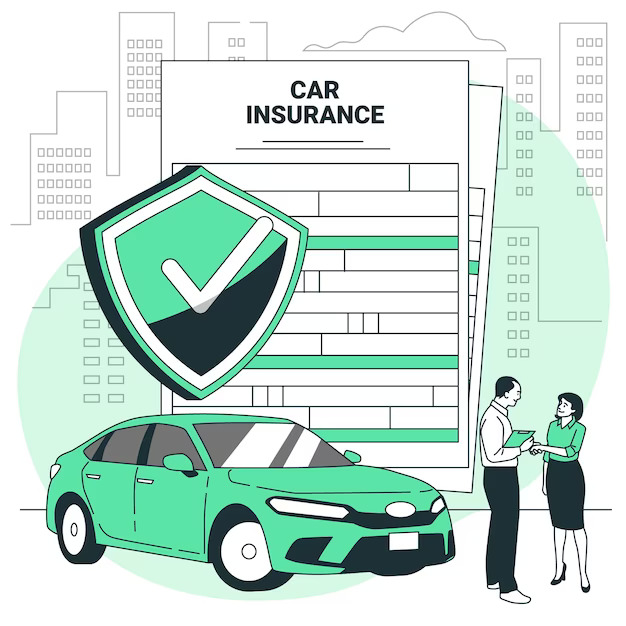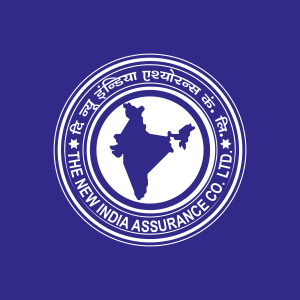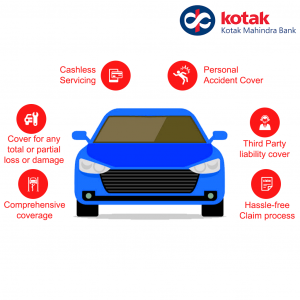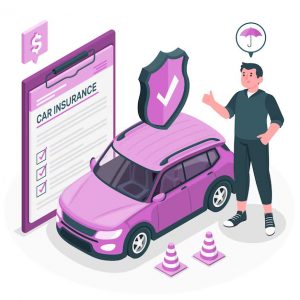Do You Have Car Insurance?
Yes, practically all states require drivers to carry auto insurance. While purchasing auto insurance is not mandated in New Hampshire, drivers are required to demonstrate their ability to cover the costs of an accident in the event that they are at fault. Because it’s required by law, the majority of drivers carry auto insurance, but that doesn’t mean you should limit yourself to the bare minimum. Purchasing auto insurance has numerous benefits.
- Pay Now and Save Later: You and your family might be shielded against significant costs by having auto insurance. You can assist prevent future expensive bills by making a small investment now in your own protection. In the event of an accident, policies with collision, comprehensive, property damage, and bodily injury coverage can assist in defraying the cost of high-priced claims.
- Protect Yourself and Others: Having the proper auto insurance can help keep you, your loved ones, your passengers, and other drivers safe. You want to be sure you have the appropriate coverage in case of an accident to handle any potential expenditures for property damage or physical injuries. Get a price for auto insurance online or contact an agent right now to find out how you can better safeguard your loved ones and yourself.
- Save Time and Hassle: After a car accident, the aftermath can be extremely time-consuming and irritating. If you have the right insurance, you can avoid handling the costs of fixing or replacing your car as well as haggling with other drivers and property owners who were involved in the collision. Many of these hassles can be avoided with good auto insurance. A quality auto insurance policy can assist with towing, replacement and repairs of the vehicle, and paying for damages to other drivers. After you file a claim on your auto insurance, the insurance provider can assist in handling the procedure and provide you with support.
- Peace of Mind: Everyone is prone to error. But occasionally, a driver’s error might affect you. You can be sure that you’re safe in the event that you are struck by an uninsured or underinsured motorist if you have the appropriate kind of auto insurance.
- Supplement Your Health Insurance: You might be able to get assistance from car insurance to cover medical costs that health insurance typically won’t. Dental care and other medical costs incurred as a result of an auto accident can be partially reimbursed by a decent auto insurance policy.
Do I Need Collision and Comprehensive Coverage on My Car?
Not every state requires collision and comprehensive coverage. It could not be worthwhile to purchase these coverages if your car is older and has a low market value. Before determining whether purchasing auto insurance is worthwhile, find out how much you can afford to pay out-of-pocket in the event that your vehicle is destroyed and how much the coverage would cost.
In the event of an auto accident, collision coverage assists in covering the cost of repairs to your vehicle. This physical damage coverage is applicable irrespective of the party responsible for the accident. For instance, you are stuck in stop-and-go traffic and your automobile is rear-ended. Repairing your damaged rear bumper might be made more affordable with the aid of collision insurance. Imagine that the roles are reversed and that you are the one striking someone in the back. The cost of fixing your damaged front end may be partially covered by collision insurance.
When there is no collision, comprehensive coverage helps cover the cost of repairs for your vehicle. These can include robbery, vandalism, and damage from natural calamities. (Yes, theft is covered by auto insurance). For instance, strong winds can topple some of the tree branches in your yard. A branch from the tree falls on your automobile, denting the roof. The price of roof repairs may be partially covered under comprehensive coverage.
Is Car Insurance Important if Someone Borrows My Car?
Yes, if you ever let someone use your automobile, auto insurance is essential. The vehicle that the car insurance coverage is for usually accompanies the policy. Therefore, in most cases, your car insurance would pay for the majority of claims that might arise while your friend is driving your car if you lend it to them.
Here are some instances of how another motorist using your vehicle may be covered by your car insurance.
- You give your friend’s car so they can perform an errand. He unintentionally hits another automobile while running the errand. The costs of the damage to your car may be partially covered by your collision insurance. You will have to pay the deductible and submit an accident claim to your insurance provider. The accident claim may result in an increase in your rates.
- If the other driver sustains physical harm or property damage, you might also be held liable. Your friend’s insurance might occasionally kick in to help with excess damages that your coverage isn’t able to pay for.
- Your friend’s lack of auto insurance means that you will probably be held entirely liable for any damages resulting from this at-fault collision. In the event that your friend causes an accident while operating your vehicle and is not at fault, the other driver will often be responsible for covering the costs.
It’s crucial to note that you have the option to exclude certain people from your auto insurance coverage. This implies that if specific individuals drive your automobile, your auto insurance will not cover them.
Is Car Insurance Important for Drivers Home for the Holidays?
Absolutely, for drivers who want to drive home for the holidays, auto insurance is essential. Even though your children won’t be driving when they go off to college, you should still have them on your insurance coverage. When they visit you for holidays and vacations, they’ll undoubtedly want to use your car, so you’ll want to make sure they have the appropriate amount of insurance when they drive your car or any other car.
This also applies to when they’re at school, as they can be requested to use a friend’s underinsured vehicle. Regardless of whose automobile they are driving, you want to make sure they are insured in the event of an accident.
Is the Car I Drive Important to Lower My Insurance Premiums?
Yes, your driving record has an impact on how much your auto insurance will cost. Your prices for auto insurance may increase or decrease depending on the type of vehicle you drive. Your car’s characteristics might have an impact on your vehicle insurance rates in a number of ways. Though not the only ones that affect how much you spend for auto insurance, the following are crucial to take into account.
- Age: Sometimes the cost of insurance for a little older car is less than that of a brand-new one. This is due to the fact that new cars are typically more expensive to fix or replace and have a greater market value. Because there can be an abundance of components for cars that are a few years old, cars that have been on the road for a while may be less expensive to fix than brand-new vehicles. These components may cost less. On the other hand, older cars may have higher insurance costs. This might be the result of their parts being harder to locate and repairs being more expensive. Additionally, they can contain antiquated safety features, which might raise rates even further.
- Make and Model: The cost of auto insurance varies among different car manufacturers and models. The cost of auto insurance is usually greater for expensive cars, including luxury cars and exotic sports cars. This is because replacing or repairing the cars would cost more due to their greater market prices. Many auto body shops may be able to perform the usual task of repairing a dent on a $15,000 vehicle. A $90,000 car’s damage repair may need to be handled by a more costly specialty auto body shop, raising the overall cost of the repair. Certain car body shops will only be permitted to do the repair in certain circumstances. SUVs and minivans are among the cheapest cars to insure, generally speaking.
- Risk of Theft: Certain makes and models are more appealing to thieves than others. You might have to pay more for insurance if your automobile is on the list of commonly stolen vehicles on a regular basis.
Securing insurance for your recently acquired car is not just crucial but mandatory according to Indian motor laws. It provides financial coverage for unforeseen expenses and safeguards you from legal issues with traffic authorities.
In India, two primary types of insurance are available for new cars. Mandatory third-party insurance covers liabilities arising from the insured vehicle, while comprehensive car insurance offers a wider scope, encompassing both third-party liabilities and damages to the insured car.
Selecting the appropriate motor insurance depends on your specific requirements. For a brand-new car, it is advisable to opt for comprehensive insurance, ensuring comprehensive coverage.
Key Tips for Selecting the Best Insurance for Your New Car
Now that you’re the proud owner of a new car, consider these simple tips to choose the ideal car insurance for your valuable asset:
- Don’t Rely Solely on Dealers: Many car owners, to avoid complications, trust dealers and buy car insurance at inflated prices. However, it’s not mandatory to purchase insurance from the dealer. You have the freedom to choose between online and offline options. Dealers might entice you with supposed “extra benefits,” but you can find similar benefits from trusted insurers online or through platforms like metassure.ai.
- Understand Your Needs: Before investing in four-wheeler insurance, understand your budget and desired coverage. Assess whether you need only third-party coverage or a comprehensive plan. Consider your specific requirements before making a decision.
- Thoroughly Compare Plans: Take advantage of the online platform to compare insurance plans from different providers. Evaluate coverage, inclusions, exclusions, add-ons, deductibles, and discounts before finalizing your choice.
- Choose Add-ons Wisely: While add-ons enhance coverage, they also come with extra costs. Select add-ons judiciously based on your new car’s needs. Essential add-ons for a new car include Zero Depreciation, Roadside Assistance, Engine Protect Cover, and NCB Protect cover.
- Know Your Insurer: Assess the credibility of your insurer by checking their claim settlement ratio (CSR). A higher CSR indicates a higher amount of settled claims. Look for a CSR exceeding 90%. Consider factors like Incurred Claim Ratio, discounts, cashless facilities, and network garages.
Ways to Secure Car Insurance for Your First Car
Purchasing four-wheeler insurance is a straightforward process. After finalizing the plan or insurer, choose between offline and online methods. However, it’s recommended to buy insurance online after comparing prices from various companies. Online purchase offers benefits such as minimal paperwork, instant policy issuance, easy plan comparison, and faster claim settlement.
In Conclusion: Whether your first car is an SUV, sedan, or hatchback, safeguarding it from unexpected damages is essential. Your first car is a significant asset, and protecting it with the right insurance ensures you won’t have to bear hefty repair costs. Follow the above guidelines to make an informed decision and secure the ideal insurance for your first car.











